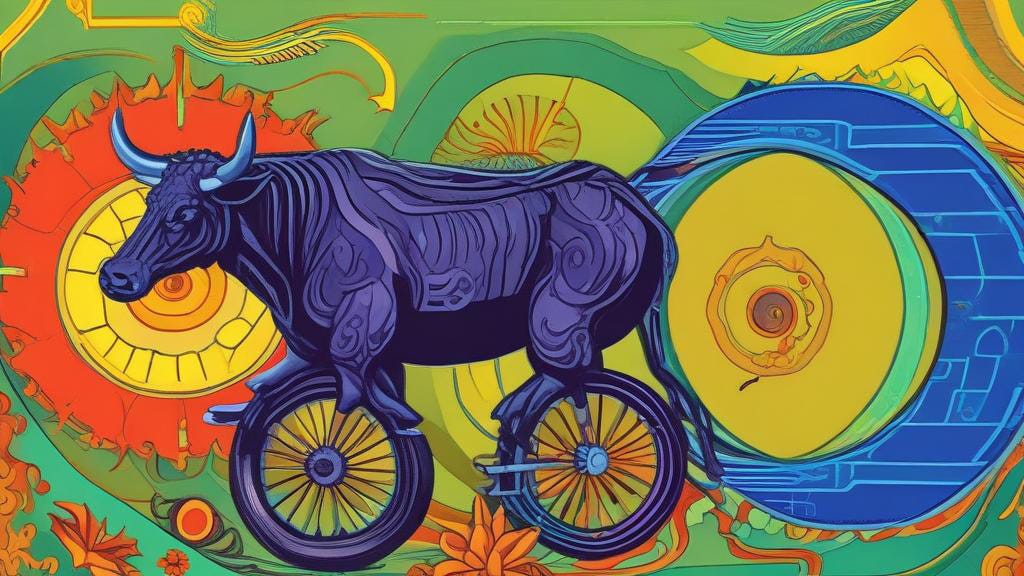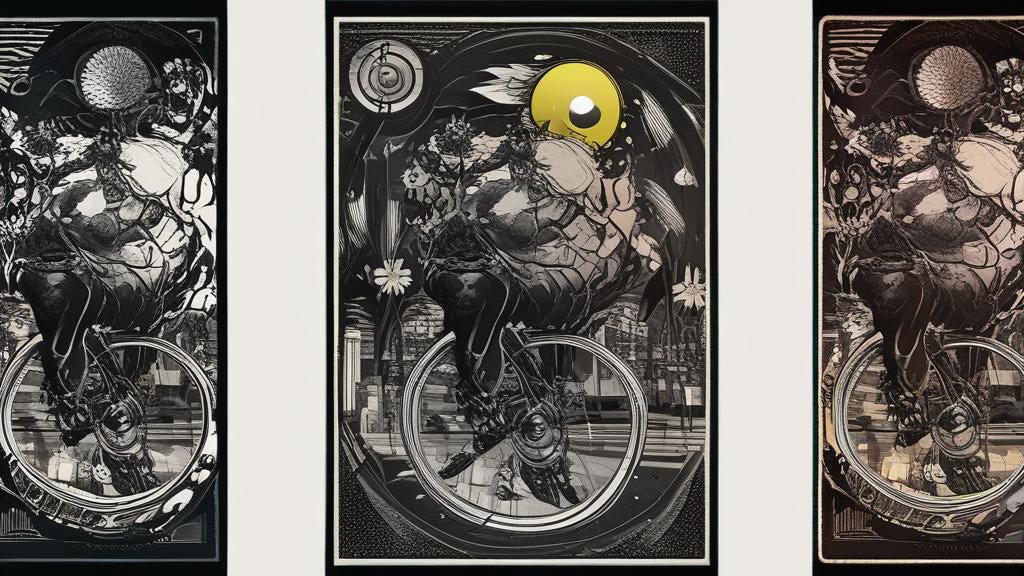While I have discussed the advantages of using pattern recognition and gestalt as a means of comprehending and navigating the world, relying on intuition and perception filters can also be a hindrance and put us in danger.
When we use the gestalt approach, we are limiting our perspective by viewing the world through our filters that are constantly deleting, distorting, and generalizing information to help us process and understand it. Techniques like NLP allow us to identify these filters and how they may influence our perceptions and decisions. It is important to remember that not all information is consciously processed; the majority is left for our subconscious to handle.
The issue at hand is that if our perceptions and beliefs are limited by our current worldview, we may reject potential truths that could bring harmony and benefit. There is a saying that states "the organism will do whatever is necessary for its success," whether that pertains to humans, animals, or the human species. Essentially, this means that throughout the evolution of humanity and our personal growth from childhood to adulthood, we adopt a perception of the world and a way of navigating it to survive and potentially thrive. This does not necessarily mean that our actions toward worldly success are ultimately beneficial for us. However, they have brought us to where we are today.
Our outlook on life, whether it is dark and negative or bright and optimistic, is shaped by our experiences, upbringing, and survival in a modern capitalist world. According to Buddhist psychology and psychoanalysis, everyone suffers in one way or another due to the interplay of our unconscious desires and fears. In NLP (neuro-linguistic programming), we pay attention to a person's language, their association or disassociation with certain topics, their use of positive or negative terms and inflections, as well as their body language and physical reactions when discussing a subject. By comparing this to other topics that we have previously studied with them, we can gain insight into their thought processes, also known as metalanguage or programming. If we are working with someone, we may use techniques such as hypnosis and isomorphic metaphors to rewire and reshape their neural networks to align with their desired outcome. This approach can help address certain addictive behaviours, for example.
It's important to recognize that every individual is addicted in some way, whether it be to substances or the neurochemistry of our brains. Our neural receptors constantly crave more, and this can lead us into a downward spiral of negative emotions and thoughts. However, these situations can also be caused by our bodies seeking out ways to trigger the emotional responses that allow them to get their fix, such as through dopamine highs from playing games or gaining social validation online. Conversely, these same things can also result in plummeting depths of depression when they don't go as planned. When we "doom scroll," we may not even realize how detached we are from conscious thought as we become hypnotized by the process. This is further perpetuated by algorithms in the attention economy that capitalize on our unconscious fears and desires through a constant stream of negativity and unattainable objects of desire. As a result, we often feel guilty and ashamed for not reaching the same levels of success as others who embody the Western world's culture of positive thinking.
After studying the research of experts like Dr Donald Hoffman, particularly in his book The Case Against Reality, it becomes increasingly evident that our perceived world is not an accurate representation of reality. As humans our perception is filtered through a lens of survival optimisation, leading us to distort or generalise other inputs as they are deemed irrelevant to this goal.
Looking at it through the lens of Gestalt and pattern recognition, we can see that it is Gestalt psychology that brings this awareness to light. This field of psychology challenges us to look at inkblots on a page and ask ourselves what we see, as our brain filters out various images. It could be a flower or a bull riding a unicycle - both are valid perceptions within the gestalt. However, our tendency towards Apophenia, the urge to find connections between unrelated things, can distort our overall perception. Our biases and preconceived notions can influence how we understand and interpret patterns, creating a false sense of reality. This is evident in the world of conspiracy theories, where individuals connect dots to create lines that do not exist.
It is crucial that we comprehend this phenomenon in our personal lives, so we can continually challenge our own, others', and the neoliberal capitalist world's interpretations of situations, life experiences, or events. This helps us recognize biases and identify where information has been deleted, distorted, or generalised to support a particular position or narrative.
While our ability to recognize patterns is a useful tool in navigating life and avoiding potential dangers, it's important to critically examine our biases and perspectives. This can be challenging in today's fragmented and polarized society. Instead of blindly accepting narratives that align with our beliefs, we should question why we are drawn to them and consider what we may be overlooking. Techniques such as psychoanalysis, NLP, mindfulness meditation, hypnosis, receptive contemplation, and meta-cognitive training can aid us in this nuanced exploration of consciousness. When we are feeling down or burdened by negative emotions, we can use this understanding to challenge the worldviews that have led us to those feelings. We must reflect on what unconscious addictions may be hindering us and how we can make positive changes for ourselves.
This is a live book writing project. Within this article, I also utilise Ai as a kind of Gestalt interpretation of the main theme. Here I am using images created by Wonder.Ai and Kiling.Ai. Copyright is protected. It is a first rough draft so I would love to hear any feedback from readers.
This project is part of the SleeplessDystopian.com writing projects.








